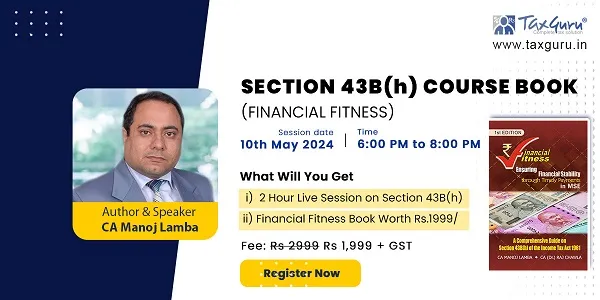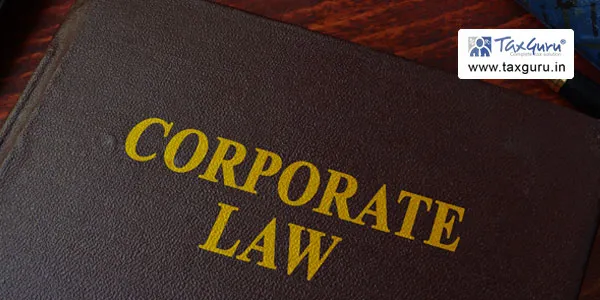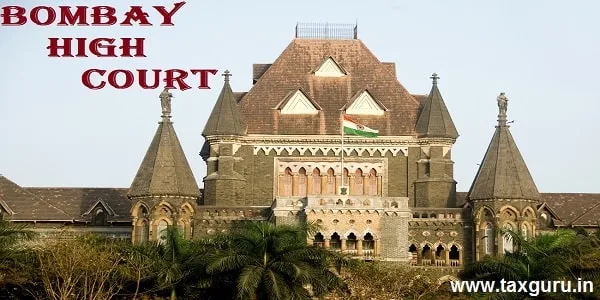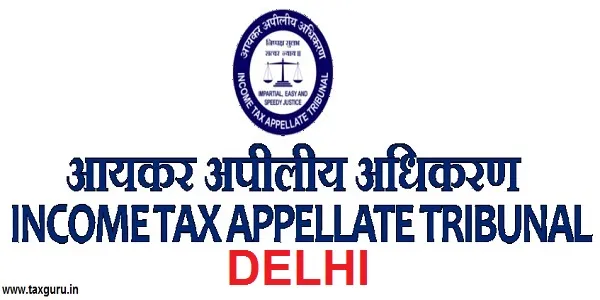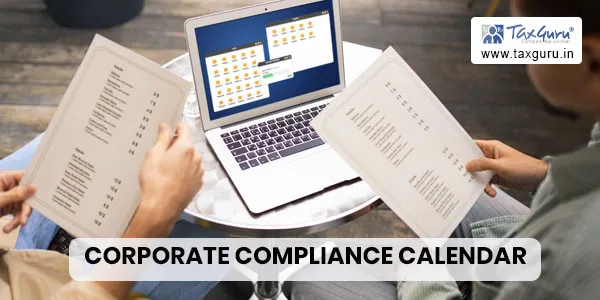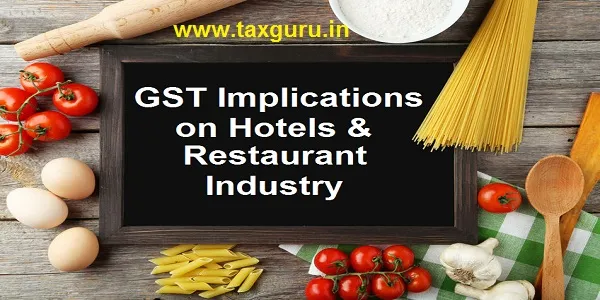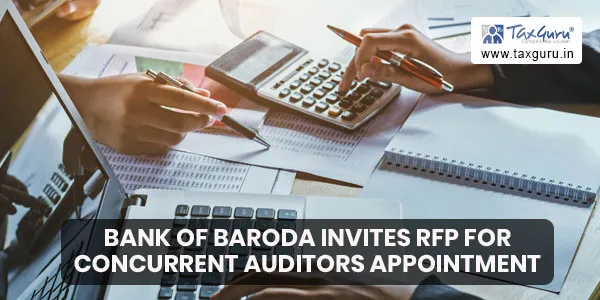(1) Preamble to the article:
In light of the Finance Act, 2021, Hon’ble Finance Minister Smt. Nirmala Sitharaman hereby emphasis on waiving off the stipulation of getting annual accounts audited by a chartered accountant or cost account on exceeding a certain threshold limit computed based on annual aggregate turnover and further stipulation of submitting a reconciliation statement, reconciling the value of supplies declared in the return for the financial year with the audited annual accounts statements, which were promulgated vide Section 110 & Section 111 of Finance Act, 2021. The Central Board of Indirect Excise and Customs (CBIC) notified the provisions of Section 110 and Section 111 w.e.f. 01.08.2021, by exercising its powers conferred under the ambit of law. Consequential effects unlatch the prerogative of the Chartered Accountant/Cost Accountant over authorization to audit books of accounts and reconcile financial audit figures with GSTR monthly returns data. This anomaly unleashes the assessee to plug revenue evasions of taxes and it’s envisaged meritless grounds on the submission of GSTR9C by the registered person himself as the figures reconciled will be prone to being materially misstated as it’s not tenable to divulge the element of self-review threat. The government had unplugged the external-review machinery, seizing the powers from the Chartered Accountant/Cost Accountant on auditing the books of accounts and reconciliation examination due to which financial figures reported to the department were more likely to be materially misstated.
(2) Framework for the GSTR-9C Form and Late Fee/Penalty Provision:
The current legislative framework of GSTR9C[i] is produced below:
- Part-A: Reconciliation statement
- Part B: Accreditation
Part-A: Reconciliation statement
The figures reported in the financial statements are on a PAN India basis. Hence the financial figures at state level need to be pulled out as GST is formulated on a dual structure, viz. central and state.
Underneath in Part-A are the following sub-parts produced below:
Part-I Basic details: – consists of the fiscal year, GSTIN, legal and trade names; or
Part-II Reconciliation of turnover declared in the audited annual financial statement with turnover declared in the annual return (GSTR-9): – It consists of reporting financial audited figures at the state level and reconciling them with the annual return; or
Part-III Reconciliation of tax paid: -This segment involves reconciliation of GST rate wise liability recognized in books with the figures reported in GSTR-9 and further needs to be substantiated with the reasons for the difference encountered; or
Part-IV Reconciliation of the Input Tax Credit (ITC): -This section involves reconciling the ITC available and utilized by a registered person with the figures reported in the books of accounts; and
Part-V Auditor’s recommendation on additional liability due to non-reconciliation: -The auditor reports any discrepancies between the audited books figures and the annual reports, as well as his recommendation for additional liability payable by the registered person.
Part B: Certification
GSTR-9C can be certified by the same chartered accountant or cost accountant who conducted the GST audit, or it can be certified by any other chartered accountant or cost accountant who did not conduct the GST audit for that GSTIN.
Late fee or penalty provisions: –
Under the current framework, if a registered person fails to file GSTR-9 or/and GSTR-9C, as the case may be, late fees of Rs.200/- (Rs.100/-CGST, Rs.100/-SGST, Rs.100/-UTGST) per day will be levied u/s 47(2) of the CGST Act, 2017 till the default continues, notwithstanding any other provision of the CGST Act, 2017, it could be subject to general penalty of Rs.25000/-. There are judicial pronouncements[ii] on waiving off invoking the aforesaid provisions in several circumstances.
(3) Impact of legislative amendments and relevant notifications
By virtue of Section 110 and Section 111 of the Finance Act, 2021, consequential amendments have been made under Section 35 (5) and Section 44 of the Central Goods and Service Tax Act, 2017. The effect of the post amendments has led to Section 35 (5) being omitted, meaning the thereby stipulated annual requirement of getting accounts audited by a Chartered Accountant or Cost Accountant is no longer sustained, and further, Section 44 shall be substituted, which led to the submission of a reconciliation statement duly certified by a Chartered Accountant/Cost Accountant no longer requisite. Before the enactments take effect, the following text is included in the pre-amendments:
“Section 35(5). Every registered person whose turnover during a financial year exceeds the prescribed limit shall get his accounts audited by a chartered accountant or a cost accountant and shall submit a copy of the annual audit accounts, the reconciliation statement under section 44(2) and such other documents in such form and manner as may be prescribed.
Provided that nothing contained in this sub-section shall apply to any department of the central government or a state government or a local authority, whose books of accounts are subject to audited by the Comptroller and Auditor-General of India or an auditor appointed for auditing the annual accounts of local authority under any law for the time being in force”.
“Section 44(2). Every registered person who is required to get his accounts audited in accordance with the provision of sub-section (5) of section 35 shall furnish, electronically, the annual return under sub-section (1) along with a copy of audited annual accounts and a reconciliation statement, reconciling the value of supplies declared in the return furnished for the financial year with the audited annual financial statements, and such other particulars as may be prescribed”.
“Rule 80(3). Every registered person than those referred to in the proviso to sub-section (5) of Section 35, Whose aggregate turnover during a financial year exceeds two crore rupees shall get his accounts audited as specified under sub-section (5) of section 35 and he shall furnish a copy of audited annual accounts and reconciliation statement, duly certified, in form GSTR-9C, electronically through the common portal either directly or through a Felicitation center notified by the Commissioner”.
Based on the analysis of the aforesaid provisions and the doctrine of literal interpretation, every registered person, u/s 35 (5) read with section 44 (2) of the CGST Act, 2017, and rule 80 (3) of the CGST Rules, 2017, shall be required to get his annual accounts audited on exceeding aggregate turnover of Rs. 2 crore per financial year and submit a reconciliation statement. The threshold limit of Rs. 2 crores were further enhanced by CBIC to Rs. 5 crores[iii].
Further, it was noted that the proviso appended to section 35(5) of the CGST Act, 2017, laid down that the requirement of getting annual accounts audited by a chartered accountant or cost accountant was not required, where, based on circumstances, departments of central government or state government or local authority books of accounts are audited by the Comptroller and Auditor-General of India, or an auditor appointed to audit the accounts of local authorities under any law for the time being in force.
Post amendments, the revised law hereinafter produced is:
Section 35(5). Excluded”
“Section 44. Substituted,
“Every registered person, other than an Input Service Distributor, a person paying tax under section 51 or section 52, a casual taxable person and a non-resident taxable person shall furnish an annual return which may include a self-certified reconciliation statement, reconciling the value of supplies declared in the return furnished for the financial year, with the audited annual financial statement for every financial year electronically, within such time and in such form and in such manner as may be prescribed:
Provided that the Commissioner may, on the recommendations of the Council, by notification, exempt any class of registered persons from filing annual return under this section:
Provided further that nothing contained in this section shall apply to any department of the Central Government or a State Government or a local authority, whose books of account are subject to audit by the Comptroller and Auditor-General of India, or an auditor appointed for auditing the accounts of local authorities under any law for the time being in force”.
CBIC hereby exercises its power conferred u/s 164 of the Central Goods and Service Tax Act, 2017, to amend Rule 80 of the CGST Rules, 2017 vide Notification No. 30/2021–Central Tax[iv], and substitute the rules hereinafter produced below. –
“80. Annual return.- (1) Every registered person, other than those referred to in the second proviso to section 44, an Input Service Distributor, a person paying tax under section 51 or section 52, a casual taxable person and a non-resident taxable person, shall furnish an annual return for every financial year as specified under section 44 electronically in FORM GSTR-9 on or before the thirty-first day of December following the end of such financial year through the common portal either directly or through a Facilitation Centre notified by the Commissioner:
Provided that a person paying tax under section 10 shall furnish the annual return in FORM GSTR-9A.
(2) Every electronic commerce operator required to collect tax at source under section 52 shall furnish annual statement referred to in sub-section (5) of the said section in FORM GSTR – 9B.
(3) Every registered person, other than those referred to in the second proviso to section 44, an Input Service Distributor, a person paying tax under section 51 or section 52, a casual taxable person and a non-resident taxable person, whose aggregate turnover during a financial year exceeds five crore rupees, shall also furnish a self-certified reconciliation statement as specified under section 44 in FORM GSTR-9C along with the annual return referred to in sub-rule (1), on or before the thirty-first day of December following the end of such financial year, electronically through the common portal either directly or through a Facilitation Centre notified by the Commissioner.”.

The Central Government further exempts the registered person whose aggregate turnover in the fiscal year 2020–21 is up to two crore rupees from filing an annual return for the said financial year under the first proviso to section 44 of the CGST Act, 2017 via Notification No. 31/2021 – Central Tax, w.e.f. 01.08.2021[v].
The Central Government further exercised its authority under clause (b) of sub-section (2) of Section 1 of the Finance Act, 2021 (13 of 2021), by appointing the date on which the provisions of Sections 110 and 111 will take effect in Notification No. 29/2021 – Central Tax[vi].
On the basis of aforesaid analysis and ongoing provisions, Lawmakers by virtue of section 110 & section 111 cited in Finance Act, 2021, annual requirements of getting annual accounts audited renounced under GST Law u/s 35(5) of CGST Act, 2017, & further registered person will on the basis of self-certification will Notification No. 31/2021 – Central Tax furnish GSTR9C, reconcile the value of supplies declared in annual audited accounts (Being audited under any law for the time being in force) with the GSTR returns furnished during the financial year under consideration u/s 44 of CGST Act, 2017 read with Rule 80 of CGST Rules 2017, & also in light of amended Rule 80 of CGST Rules, 2017 substituted vide Notification No. 30/2021 – Central Tax, stipulated mandatory requirement of furnishing GSTR9C for registered person exceeding an annual turnover during a financial year Rs. 5 crores otherwise it will be on discretionary basis by registered persons.
The statute also states that pursuant to Notification No. 31/2021 – Central Tax, w.e.f. 01.08.2021, read with amended first proviso appended to Section 44 of the CGST Act, 2017 and Rule 80 of the CGST Rules, 2017, registered persons whose annual aggregate turnover does not exceed Rs. 2 crores for the fiscal year 2020–21 is exempt from filing an annual return (GSTR9).
In addition, an Input Service Distributor, a person paying tax under section 51 or section 52, a casual taxable person, a non-resident taxable person, and a person paying tax under section 10 (composition scheme) are not required to file an annual return, i.e., form GSTR-9, because the law has provided other statutory machinery to enable them to do so. On similar footings, similar classes of persons, an input service distributor, a person paying tax under section 51 or section 52, a casual taxable person, and a non-resident taxable person, shall not be required under law to furnish a self-certified reconciliation statement, i.e., form GSTR-9C, for the financial year under consideration.
The Statue also stipulated, by virtue of the second proviso appended to Section 44, that nothing contained in Section 44 shall apply to “to any department of the Central Government or a State Government or a local authority, whose books of account are subject to audit by the Comptroller and Auditor-General of India or an auditor appointed for auditing the accounts of local authorities under any law for the time being in force”.
(4) Retrospective or prospective application of the amendments:
It is a well-settled proposition by various judicial pronouncements and legislative principles that, unless explicitly stated, a piece of legislation is presumed not to be intended to have retrospective operation[vii]. Legislation envisages the application of laws based on the principle “lex prospicit non respicit”, which means that “the law looks forward and not backward” was upheld.
Thus, applying these rules of interpretation and various propositions upheld based on the aforesaid provisions, it can be clearly construed that the stipulated requirement of getting annual accounts audited under GST LAW is renounced w.e.f. FY 2020–2021 onwards as read with legislative amendments through Notifications and Finance Act, 2021, and taxpayers will proceed to file GSTR-9C on a self-certification basis for those accounts audited under any other law for the time being in force. Thus, it is legislative intent to levy application of these amendments on a prospective basis w.e.f. FY 2020–2021.
(5) Conclusions
In light of the preceding jurisprudence, legislative principles envisioned to relinquish GST Audit and allow registered persons to file GSTR9C on a self-certification basis, the above amendments enacted to employ harshness and oppression to enlightened professionals, i.e., CA/CMA, for not relying on their strengths, and the resulting effect will be unsatisfactory as the elements of integrity, independence, and objectivity will not be reflected in reported data. It led to misreporting of financial data and revenue leakages that will not be mitigated. Instead, they will escalate, as self-review threats materialize.
[i] https://www.cbic.gov.in/resources/htdocs-cbec/gst/notfctn-49-central-tax-english-new.pdf
[ii] Union of India vs. All India Federation of Tax Practitioners (Andhra Pradesh High Court) & UOI vs Tax Bar Association (Supreme Court of India
[iii] Refer to the 43rd GST Council Meeting
[iv] https://cbic-gst.gov.in/pdf/central-tax/notfctn-30-central-tax-english-2021.pdf
[v] https://cbic-gst.gov.in/pdf/central-tax/notfctn-31-central-tax-english-2021.pdf
[vi] https://cbic-gst.gov.in/pdf/central-tax/notfctn-29-central-tax-English-2021.pdf
[vii] Govinddas v. Income Tax Officer (1976)1 SCC 906 and CIT Bombay v. Scindia Steam Navigation Company Limited [1962] SCR No. 788





